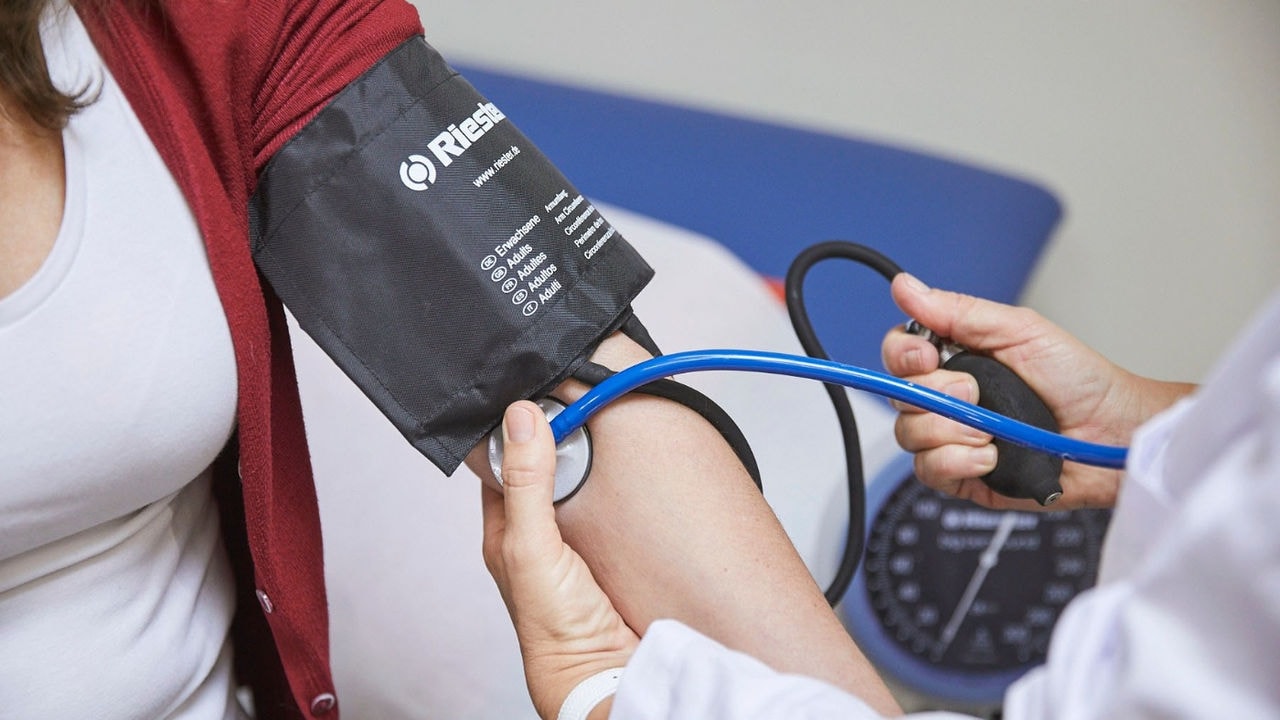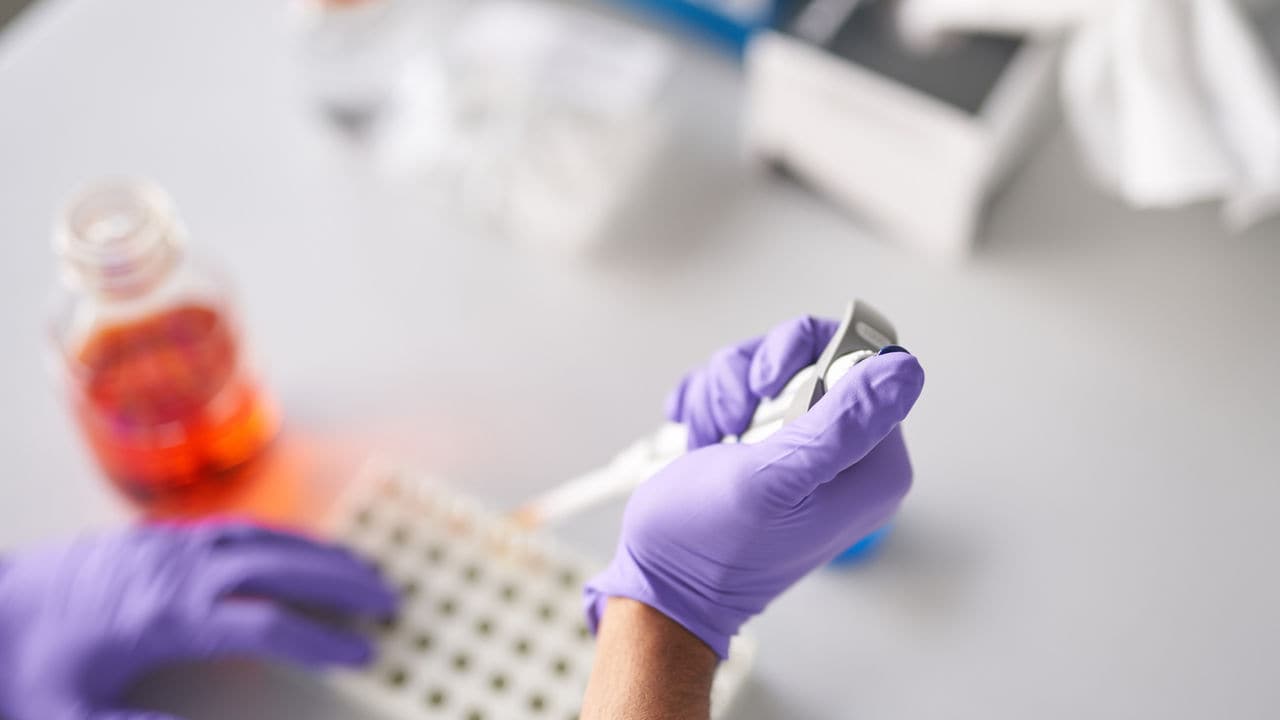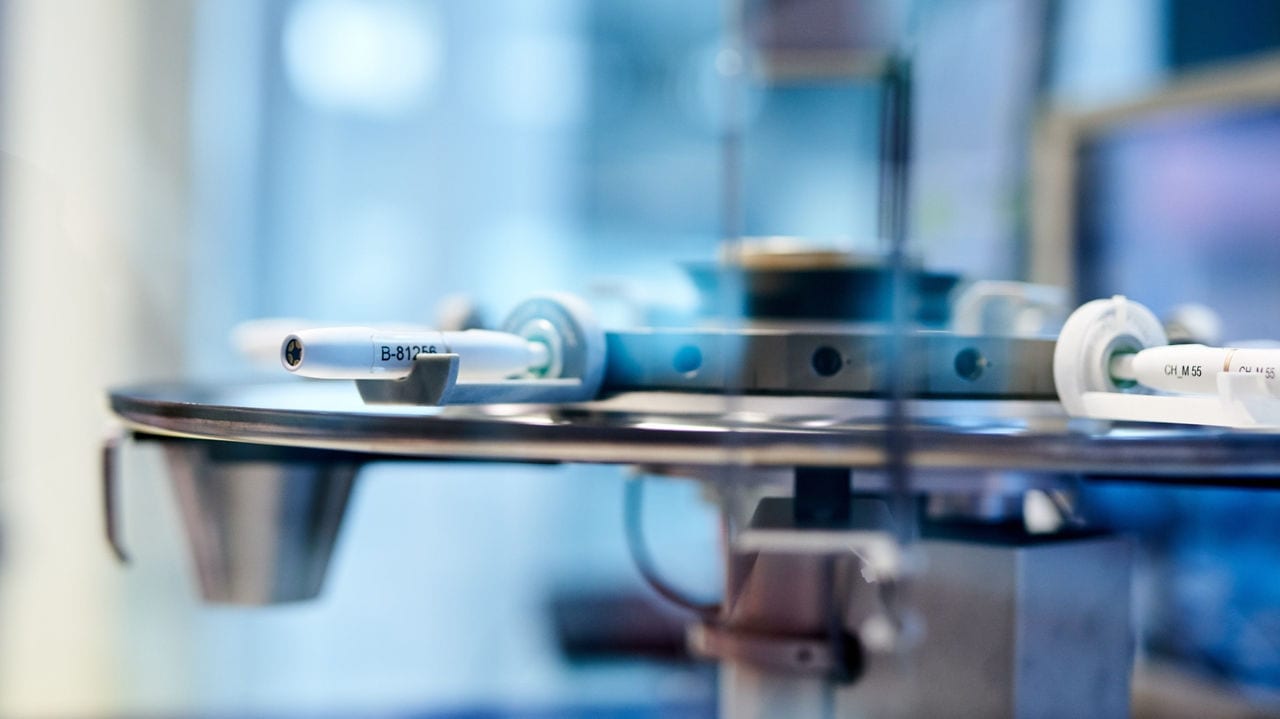PMI's application of best practices to our clinical programs
Dr. Patrick Picavet, a physician by training, joined PMI over seven years ago after working in the University Hospital in Mannheim and afterwards in the pharmaceutical industry. Since then, Patrick has held several roles in PMI, including Director, Clinical Assessment, in which he was responsible for the planning and execution of clinical studies on our smoke-free products. Since early 2017, as Director, Medical Affairs, Patrick is helping to establish the next steps in the strategy for PMI’s assessment program and supports PMI’s efforts to inform the scientific and medical communities about our science.
Could you describe exactly what it is that a medical doctor is doing at PMI?
There’s plenty of work for the many medical doctors we have at PMI. For example, we have Medical or Clinical Scientists who oversee our studies in people from a medical and scientific point of view. There are also Medical Safety Officers, who are responsible for overseeing the well-being and safety of participants involved in our clinical studies, as is the case in any other company conducting clinical studies. So it’s not unusual that someone like myself would be working here.
What guidelines does PMI hold itself to in its clinical research program?
Guidelines for Good Clinical Practices (GCP) as issued by the International Council for Harmonisation of Technical Requirements for Pharmaceuticals for Human Use are a set of internationally recognized principles that regulatory bodies around the world expect researchers to follow when conducting clinical studies. These guidelines are far reaching, covering topics such as ethical research conduct, protecting the rights, safety and well-being of study subjects, as well as the proper documentation of all study records. Like other organizations, PMI abides by these principles for our clinical research, as well as following the recommendations in the FDA’s 2012 Draft Guidance on Modified Risk Tobacco Products. i
PMI’s quality management processes are based on these standards, requiring that PMI researchers perform their work ethically, using scientifically sound methods and describe the aim of the research upfront in a clear and detailed study protocol. All information related to the research must be recorded in accurate records properly stored and protected from tampering. The records serve as indispensable documentation of the conduct of the research, provide evidence that the collected data is traceable and credible, and that the rights of all study participants are protected.
For each clinical study, we establish a PMI study team that focuses on both designing individual studies and overseeing the conduct of the study as the sponsor is required by GCP. Per common practice, we outsource study-related activities to qualified Contract Research Organizations (CROs), including the actual conduct of the study, during which the PMI study team works closely with their CRO counterparts.
How does PMI ensure the safety of its research participants?
One of the key principles in GCP and related guidelines is that the safety of study participants must be ensured. These guidelines form the basis for the processes we apply in our studies to ensure the rights and well-being of study subjects are protected. One essential part is that our clinical studies are all conducted under continuous medical oversight under the responsibility of a trained and board-registered physician in the role of the Principal Investigator (PI).
The PI is responsible for managing and documenting potential adverse events (expected or unexpected medical effects during the cause of the study) which may or may not be associated with the product being tested. In this context, as a sponsor of the research, we are responsible for what happens during a study, and so we may provide opinions or suggestions, but ultimately we must defer to the PI’s medical judgement. The sponsor can never overwrite the PIs evaluation of a study subjects’ medical condition.
One such situation illustrating this relationship between PMI and the PI occurred in a 2013 clinical study. During the study, a few participants produced an excessive quantity of urine in a 24-hour period, which is quite uncommon. The subjects confirmed drinking increased amounts of water during each of the study days, all medical tests came back normal and the study subjects did not show any signs of medical concern. Therefore the PI considered these events initially not to be adverse events. As the recorded urine volumes were unusual, PMI as the sponsor and following GCP initiated an investigation to understand the underlying cause of these cases.
The PMI study team discussed these cases with the CRO and the study site and decided that a study audit should be performed by PMI’s quality assurance team. The audit concluded that the study site had correctly followed all processes as required by the study protocol and GCP, and the PI and staff had properly documented the cases and their response to the issues.
After discussion with the medical monitors of the study as well as PMI, the PI ultimately decided to mark these incidences as adverse events, and to monitor consumption of water for the remaining participants.
How can the public know that your data are not tampered with?
GCP also provides clear guidance on how to document clinical research. The guidelines require significant documentation at every point of the research process to provide a reliable record of events – also called “essential documents”. Documentation on clinical studies should furthermore follow the ALCOA principles (Attributable, Legible, Contemporaneous, Original and Accurate). This is to ensure data integrity and traceability and, in consequence, the validity of the research.
As an example, GCP helped safeguard against what could have been a break in the chain of sample custody that arose in one of our clinical studies in the U.S. in 2015. A PMI-contracted laboratory received a shipment of samples from one of our clinical study sites and found that the number of samples received contained fewer samples than expected, where the samples’ labels did not match the shipping manifest provided by the clinical site. PMI requested a detailed investigation. Under the guidance of our CRO and oversight by PMI, the laboratory and the clinical study site developed a reconciliation plan, which was thoroughly documented and then executed to discover and resolve the discrepancies.
Toward this end, the CRO-assigned team flew to the laboratory and the respective study site, spending multiple days at both locations reviewing every single sample collected from the time of collection to time of analysis. As a result, the discrepancies were resolved, and the integrity and traceability of the data collected from these samples was confirmed.
GCP requirements make the research sponsor accountable for the study independent of the level of its involvement. This means that it is our responsibility as a research sponsor to ensure the safety and well-being of our study subjects, and the integrity of the research. As I mentioned before, the sponsor’s role during the execution of study is oversight. In other words, the sponsor does not create records linked to study participants, so it goes without saying that this also excludes the possibility of a sponsor altering such records undetectably.
What corrective actions does PMI take if necessary procedures are not followed?
If essential elements of GCP are not followed by the study site, corrective actions are required. PMI has taken corrective action in such cases, up to closing a specific research site.
In such cases, PMI follows a strict and structured process as defined in our quality management system, which is based on GCP. This begins with a For-Cause audit: an on-site investigation by PMI’s quality assurance group or an external party. If such an audit detects non-conformance with GCP that would impact the safety of study participants or the ethical conduct or validity of our research, then closing a study site might be the outcome. These types of situations are not unique to the tobacco industry; they also happen in clinical studies conducted by the pharmaceutical and other industries. And it’s part of the reason why GCP principles are so important. They guide study teams on a daily basis and ensure that decisions are properly made and documented.
One such case occurred very early in the conduct of a 2013 study in Japan – even before posting the study on ClinicalTrials.gov. During a routine site-monitoring visit, the CRO overseeing the study noticed discrepancies in the site’s procedures as compared to GCP, which triggered a For-Cause audit by the CRO’s and PMI’s quality assurance groups.
The audit confirmed the identified discrepancies to the requirements of the study protocol and to GCP. As a consequence, these issues prompted PMI to immediately close this study site. However, we were able to successfully complete the respective study by instead recruiting the entire number of subjects required by the protocol at the remaining study site.
How common are site closures, exactly?
The standards and controls we have in place are designed to help avoid incidents such as a site closure. But they do happen, not just for us but in any industry conducting clinical studies, such as the pharmaceutical industry. Examples can be found online. Companies conducting clinical studies, including PMI, have multiple proactive controls in place to ensure study integrity and adherence to GCP. Like with international pharmaceutical companies, these controls are also designed to detect non-adherence to GCP and trigger appropriate remediation actions where issues are found.
How do you ensure that the study sites and personnel are qualified, and how do you train the sites particularly if they don’t speak English?
GCP requires that all study personnel involved in clinical research are qualified to ensure appropriate study conduct. Therefore before starting a study, a so-called qualification visit for each potential study site is performed by our CROs. These visits are performed as face-to-face visits, where they review and assess the qualifications, experience, capabilities of the site personnel, and the suitability of the facility to conduct the study. This is then documented in a Qualification Visit Report, which PMI receives prior to approving a site to participate in the study. Last but not least, each study and the PI for each study site are reviewed and approved by an Institutional Review Board (IRB) prior to conducting the study.
To ensure proper understanding by personnel involved in our studies who do not speak English, the protocol, investigator’s brochure (a summary of all relevant information on the product studied) and other study documentation are translated to local the language (e.g., Japanese) as appropriate and required. These are provided to the PI and the IRB.
With regards to the training when a language barrier exists, we can for example conduct a study training meeting in English for the CROs and all supporting study vendors (known as the pre-investigator meeting), who are required to have English-speaking personnel. The CRO then performs the training for each study site including the investigators in local language (i.e., the investigator’s meeting / site initiation visit). These include training on Good Clinical Practice, the study protocol and procedures, and the electronic systems used in the study. All trainings and training records are documented in the Study Master File and are available for inspection by regulators at any time.
Do you have any closing thoughts about PMI’s clinical program?
Clinical studies are a complex undertaking, and as in every complex process, we have to expect that irregularities can and will happen. This is why standards such as GCP exist: to provide clear guidance on each step to minimize the number of issues that can occur and to provide guidance on how to address them when they do.
This is, in fact, why PMI is committed to strictly following these standards. The guidelines are not only integral to maintaining the validity of the data, but also to its transparency, participant safety and overall ethical conduct. Our hope is that our adherence to these principles will allow others to see our research for what we believe it is: a significant contribution to evolving today’s scientific knowledge on better alternatives to cigarettes for the millions who smoke around the world.
[i] Modified Risk Tobacco Product Applications | Draft Guidance | FDA

Read the Scientific Update magazine
The Scientific Update magazine is focused on PMI's research and development efforts, milestone studies, industry regulations, and more. View the latest issue, or read the articles online.



